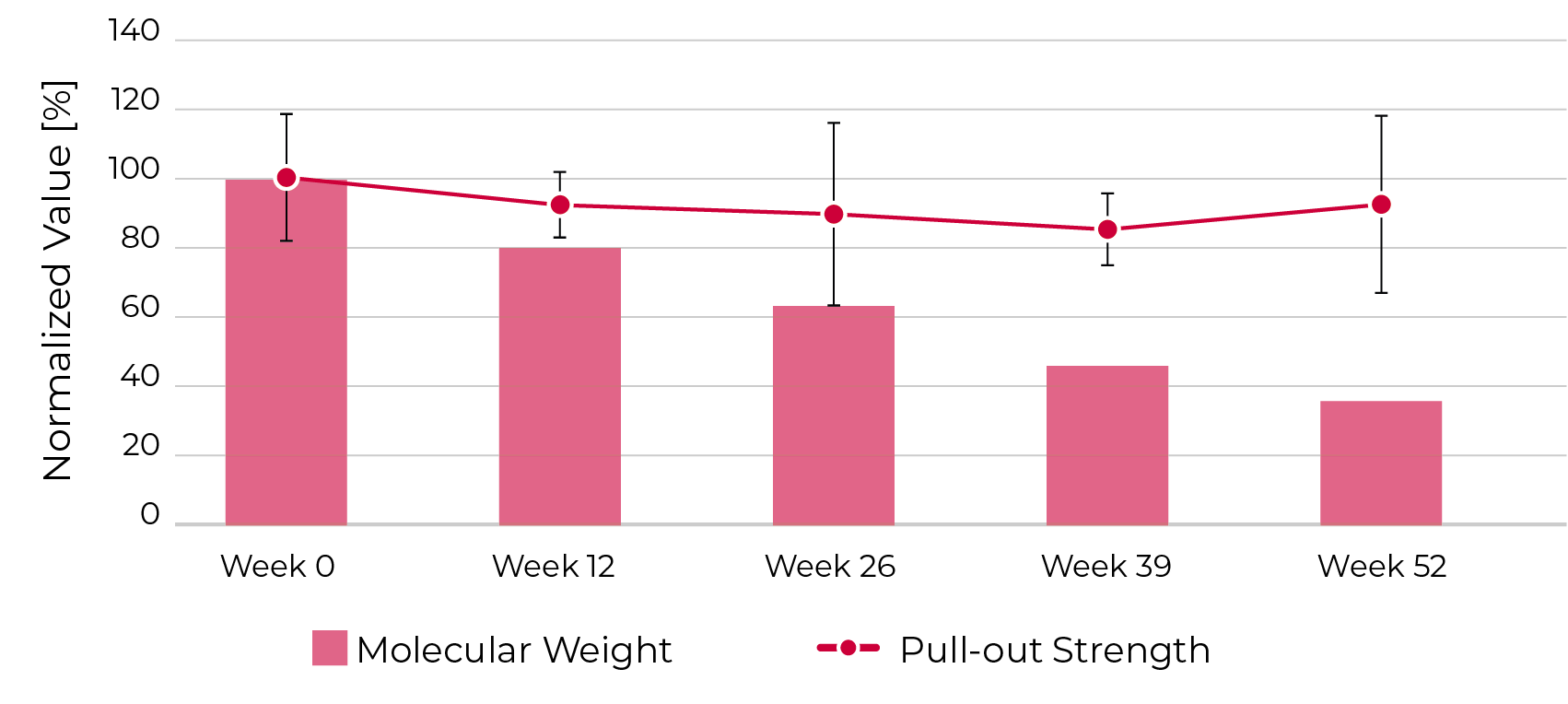SF Push-in Anchor: Preserving Mechanical Stability in Orthopedics
SupraFusion® Technology for orthopedic implants preserves mechanical strength while ensuring controlled degradation. SF Push-in Anchors, enhanced with SupraFusion® Technology, exhibit progressive degradation without compromising mechanical stability. This breakthrough extends stable anchoring, reducing the risk of failure and improving patient outcomes in orthopedic implantation.
In the orthopedic implant domain, the balance between degradation and mechanical stability is paramount. Our latest research unveils a groundbreaking solution: SupraFusion® Technology, preserving mechanical strength while ensuring rapid degradation.
Why is this significant? Resorbable polymeric implants, like PLDLLA, offer promising advantages but face challenges due to premature breakdown. Our study shows that while SF Push-in Anchors experience degradation (up to 70% after 12 months), their mechanical stability remains intact.
How? SupraFusion® Technology revolutionizes the implant-bone interface, defying the initial molecular weight loss of PLDLLA. By augmenting this interface, we extend the duration of mechanically stable anchoring, mitigating the risk of implant failure.
This breakthrough not only enhances patient outcomes by eliminating the need for subsequent removal surgeries but also opens new avenues in orthopedic implant innovation.
Join us in reshaping the future of orthopedic surgery with advancements that prioritize both patient safety and efficacy.
Want to learn more: White Paper 001. SupraFusion – Mechanical Performance

